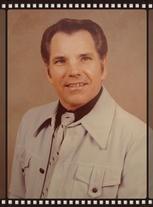"SPILT INK" & Genealogy - DNA Forum
| Forum: Spilt Ink | |||||
|
|||||
|
Ron Smith
 Posts: 58 View Profile |
More of the story Posted Wednesday, September 20, 2017 12:05 PM Since there isn’t much traffic presently on “Spilt Ink”, I want to belatedly add the prologue which explains the why and how of the title I chose, and #4, which sets the scene as it was at the time. “The Steps of a Good Man” Prologue Why this title, and whose story shall this be? It is a chronicle of a family’s “pursuit of happiness“, sometimes masquerading simply as survival, and happiness they did find, in spite of awaiting twists and turns, unknown and unforeseen pitfalls and misfortunes, circumstances that make one turn for refuge, in trust, by faith in God, to the guidance of the Unseen Hand, and the Providential outcomes that validate that very faith and trust. Narrated from the perspective of a child, described from my memory as I began to be old enough to be a sometime observer, and oftentimes a player in the action, and from my heart as I reacted emotionally to circumstances and situations, and registered pleasure or displeasure, but through it all, my father, as head of the family and provider for the same, was the center of our universe. Through sickness and in health, through lean times and good times, we depended upon the anchor of his loving superintendence and continued as he led. Through the facility of hindsight, observing the last forty years of Dad’s life, from his recovery from, and remission of the cancer that very nearly, and by all the expert prognosis should have ended his life at age twenty-seven, to the exactness of the answer to his Hezekiah-like death-bed prayer, it is a very convincing argument for the presence of a Providential Unseen Hand, opening doors and going before our family, with a Strong Arm, providing a path for Dad, by faith, to follow, hence the title for this narrative;Psalm 37:23 states, ”The steps of a good man are ordered by the LORD: and he delighteth in his way.” It was as though the barn door could be heard banging in the wind. Someone had not been thorough in the due diligence department. The approaching storm had been accompanied with advance warning, for there were proper precautions in place regarding the barn door. For the moment, the night is too dark, the wind too strong, and the bed too warm and comfortable. Tomorrow morning, in the light of day, there will be measures taken to deal with the situation. “Tomorrow morning“, December 7, 1941, nearly 2400 Americans would die. An occurrence, considered too audacious to be an actual possibility, had indeed happened. 7:53 a.m. local Hawaiian time, 12:53 New York City, 10:53 Tulsa time, and 9:53 in Colorado, will be remembered as the time the attack commenced, but the attack had actually begun twelve days earlier; the barn door had been banging for over a week and a half ! The “red flag” indicators that something was in the wind, were assessed in a “best light” frame of mind, and not given the due diligence that would have been appropriate. Separated from the threat by a vast expanse of ocean, and beyond the range of the warplanes of that era, complacency became over-confidence, bordering on arrogance. Audacious and resolute, the enemy struck a staggering blow, but an adequate response, consistent with 2 Corinthians 4, verses 8 and 9: “We are troubled on every side, yet not distressed; we are perplexed, but not in despair; persecuted, but not forsaken; cast down, but not destroyed” ; we rallied. Alternating waves of fear and anger, in generous measure, awakened and motivated our nation. A quote from Paul Sparrow, director of the FDR Library, says, “It was the worst day of his presidency. It was the worst military defeat in American history. I think December 7, 1941 is perhaps the most important day in American history. It is the transition day when we shifted from being an isolationist nation to being a global superpower.” A lesson too late for the learning? I hope not. Our enemies today are just as audacious and resolute as ever, and much more illogical. The “Greatest Generation” answered the call and rose up to face the reality of the situation, met it, and prevailed, though at a high cost; 400,000 American lives were part of the payment to preserve our freedom and way of life. Is there a generation in existence in our nation today that can meet and match the call, if required? (Among the flag-burners and ceremonial back-turners and knee-takers while honor is being paid to our nation, its flag, and its defenders, infectious to our culture like a foul foot-fungus, we need not look! Have they no shame? I would not spend a dime that could possibly wind up in their Constitutionally protected pocket! ) For Americans, the war began on that December Sunday morning in1941. On December 8, the United States declared war on Japan, entering World War II. But war had been going on for years elsewhere. For the Chinese, war began in 1931, when Japan invaded northeastern China. For Europeans, war began in 1939, when Germany invaded Poland. On September 3, 1939, honoring their guarantee of Poland’s borders, Great Britain and France declared war on Germany. The United States had declared neutrality in 1939 concerning the war in Europe, but President Roosevelt had sought to provide assistance for the Allies while still keeping the United States out of the war. He began by asking Congress to amend the neutrality laws to allow arms sales to our Allies. Later on, after German forces overran France, he asked Congress for a massive program of direct military aid to Great Britain, an initiative that would be called "Lend-Lease." In both cases the legislature agreed to FDR's proposals.In March of 1941 the “Lend-Lease” programs were begun, allowing the U. S. to send ammunition and other critical supplies to England. No longer a neutral nation, the United States will give England all help “short of war.” The “short of war” condition lasted only a few months, then we would be in it for the long haul, however long that would be. We would be supplying our allies with every manner of necessary war materiel and building two hundred new cargo vessels to ship it in! New demands would be made on our industry, our manufacturing plants, and soon to be integral to my future, our petroleum reserves.The war in Europe would not end until May of 1945, and in the Pacific in August of that year. In the interim, my dad continued to convalesce, keeping busy by repairing sewing machines and anything else anyone brought to him. He had a friend who loved to trade. He would trade for something that needed “fixin”, bring it to my dad who would repair it, then he would take it back and trade it for something else that needed to be worked over. They did this so often, he remarked one day,”We can make a livin’ off each other, just tradin’!” My dad was not a very accomplished musician but during this time he was able to “brush up” on his technique. He and three of his brothers, and a couple of long-time friends, had a band and played for dances, but as Daddy used to say, “mostly for our own amusement and amazement”. He played the guitar, stand-up bass, mandolin, banjo and Hawaiian steel guitar. His eldest brother, an accomplished, and award-winning instrument maker was their fiddler and band leader, another older brother with a Johnny Cash type voice, but with better range (and could carry a tune better when harmony was called for) played guitar and was their lead singer, a younger brother was their M.C. and humorist ( he was commended for keeping up morale in his Army Air Corps unit when they were “flying the Hump”) and, a Howard Keel look-alike, he attracted all the ladies! They had a radio show out of Waterloo, Iowa, and made several decent records. About 1944 in Mississippi, Daddy used to take his favorites to the café where the crew would have their meals and talk the proprietor into putting them on the juke box, then listen for comments from the patrons as they played. I remember how I used to enjoy sitting quietly, listening, and watching their practice sessions and rehearsals. Daddy used to say, “out of town, dolled up in our fancy Western outfits, we were the Ozark Ramblers! Around Locust Grove, we were just the Smith boys with yellow shirts on”! The guitar Daddy played is one that his brother made for him in1935. He paid it off by shocking oats for eight days. It belongs to my brother now. I have one that he made about forty years ago. My brother’s wife has one of his violins, a really fancy one with some special purfling. With military enlistments, having families, and other miscellany, the band members eventually were not able to get together on a regular basis to rehearse, so they discontinued booking engagements and disbanded.
|
||||
|
|||||
|
A. J. Smith
 Posts: 29 View Profile |
RE: More of the story Posted Friday, September 22, 2017 11:48 AM Great job, Ron. Thanks for sharing! |
||||
|
|||||

